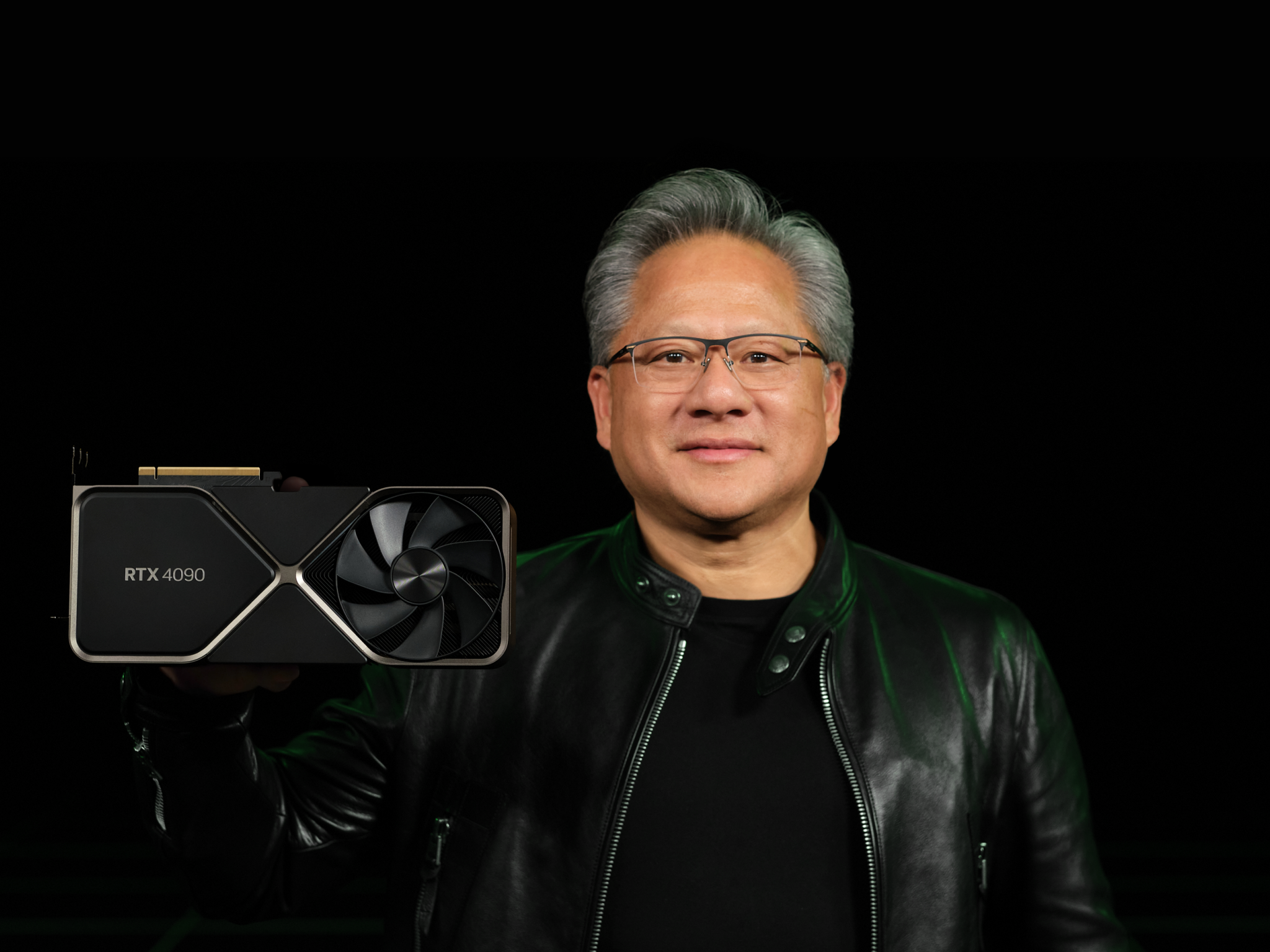
NVIDIA Corp's (NASDAQ:NVDA) GPU Technology Conference (GTC) was packed with company updates, led by the launch of a new generation of GeForce RTX GPUs. Here's a look at some highlights from the event.
"Computing is advancing at incredible speeds, the engine propelling this rocket is accelerated computing, and its fuel is AI," Nvidia CEO Jensen Huang said at the start of the virtual event.
New GPUs: Nvidia on Tuesday unveiled the GeForce RTX 40 Series, which is the company's first GPU series powered by the company's new Ada Lovelace architecture. Ada’s advancements include a new streaming multiprocessor and a new RT Core, as well as a new Tensor Core. Ada also uses AI to generate new frames by using prior frames to understand scene changes.
Huang called the new GPU series a "quantum leap," which creates a path for creators to make fully simulated worlds.
AI Trends: The Nvidia CEO also touched on broader AI trends around large language models and recommender systems.
“A single pre-trained model can perform multiple tasks, like question answering, document summarization, text generation, translation and even software programming,” Huang said.
He noted that the company's new H100 GPU, which is in full production and is expected to be shipped in the coming weeks, delivers the computing power needed to run said models.
Check This Out: Bad Dog?! Jim Cramer Shorts Stock He Named His Dog After
The Metaverse: Omniverse is Nvidia’s platform for building and running metaverse applications. NVIDIA OVX servers are built for scaling out metaverse applications.
NVIDIA’s 2nd-generation OVX systems will be powered by Ada Lovelace L40 data center GPUs, which Huang announced are now in full production.
Huang also announced new deployment availability for the company's Omniverse Cloud. Replicators for synthetic data generation, farms for scaling renders and Isaac Sim for building and training AI robots are now available for Omniverse Cloud.
Autonomous Vehicles: Today's vehicles rely on different computers for various features, but in the future, vehicles will rely on software running on a centralized computer that improves over time, Huang said.
To power this transition, Nvidia introduced DRIVE Thor, which combines the transformer engine of Hopper, the GPU of Ada and the CPU of Grace.
"The new Thor superchip delivers 2,000 teraflops of performance, replacing Atlan on the DRIVE roadmap, and providing a seamless transition from DRIVE Orin, which has 254 TOPS of performance and is currently in production vehicles," the company said.
Thor will also be used as the processor for robotics, medical instruments, industrial automation and more. Nvidia's Orin processor is currently used in robotics applications. The company announced the new Jetson Orin Nano on Tuesday and said it's about 80 times faster than the previous model.
"Today, we announced new chips, new advances to our platforms, and, for the very first time, new cloud services," Huang said near the end of his presentation.
"These platforms propel new breakthroughs in AI, new applications of AI and the next wave of AI for science and industry."
See Also: Investors Beware: Nvidia Stock Is 'Locked In A Pretty Substantial Downtrend'
NVDA Price Action: Nvidia has a 52-week high of $307.11 and a 52-week low of $126.17.
The stock was up 3.50% at $136.38 Wednesday afternoon, according to Benzinga Pro.
Photo: courtesy of Nvidia.







